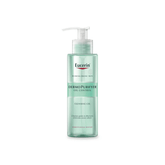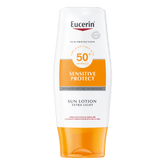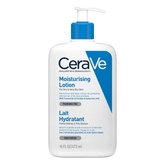How To Get Rid Of Acne Scars in Nigeria
Acne scars might remind you of your victories over obstinate breakouts. They also remind many Nigerians and others of their acne troubles. Clear, smooth skin may be challenging and gratifying, whether battling teenage acne or adult breakouts. This article explores efficient methods on how to get rid of acne scars permanently. We'll help you regain confidence in your skin by explaining scar types and providing home and professional treatments.
3 types of acne scars
Understanding the different forms of acne scars is essential to creating a skin-friendly treatment plan. Each acne scar type presents unique issues and requires specific treatments. You may face three main types:
1. Icepick scars: These deep, narrow scars look like skin pits. They often develop from deep-seated acne lesions. Although icepick scars are deep, microneedling or punch excision may enhance their look.

2. Rolling scars: Damage beneath the skin causes rolling scars with a wave-like pattern. They may look like shallow depressions with sloping edges, making the skin wavy. Subcision or laser therapy can break up rolling scar fibrous bands, smoothing the skin.

3. Boxcar scars: Boxcar scars have broad, angular edges like chickenpox scars. They vary in depth and size and are commonly caused by inflammatory acne. Boxcar scars may be treated with chemical peels or dermal fillers to increase collagen production and cover depressed regions.

Identifying your acne scar type helps you and your dermatologist create a focused treatment strategy to reduce their appearance and restore your skin's smoothness and vibrancy.
5 causes of acne scars
Understanding acne scar causes might help you prevent and reduce their severity. Disruptions to the skin's natural healing process cause collagen production and tissue damage, causing acne scars. Here are some common acne scarring causes:
- Inflammatory Acne: Cystic or nodular acne causes inflammation and tissue damage, which can lead to scarring. Trying to "pop" acne lesions can worsen inflammation and scarring.
- Delayed or inefficient treatment: Using inefficient skincare products or not treating acne quickly might prolong breakouts and cause scarring. Early acne therapy helps reduce inflammation and scarring.
- Genetics: Your genes affect how your skin reacts to acne and heals. Even mild to moderate acne lesions may scar in people with a family history of acne scarring.
- Skin type: Oily and mixed skin are more prone to acne and scars. Excess oil can block pores, cause inflammation and breakouts, and exacerbate scarring.
- Squeezing or picking acne lesions: Picking, squeezing, or popping acne lesions can break the skin and spread bacteria, raising infection and scarring risk. Avoid manipulating acne blemishes and seek professional treatment to reduce scarring.
By treating these causes and managing acne proactively, you can decrease scarring and get healthier skin. Dermatologists offer customised advice and treatment alternatives.
How to prevent acne scars
Preventing acne scars demands proactive outbreak management and skin damage reduction. The following methods can help prevent acne scars:
- Treat acne breakouts quickly to avoid scarring. Use gentle cleansers and acne-fighting products with benzoyl peroxide or salicylic acid to reduce inflammation and unclog pores.
- Do not pick, squeeze, or pop acne lesions since this can aggravate inflammation and scarring. Let blemishes cure spontaneously or contact a dermatologist.
- Wear sunscreen regularly to protect your skin from UV rays, even on cloudy days. Reapply a broad-spectrum sunscreen with an SPF of 30 or higher to prevent acne scars from darkening.
- Establish a consistent skincare routine. Create a routine for your skin type and issues. Wash your face twice daily, moisturise, and use non-comedogenic products to avoid clogged pores.
- Use non-invasive acne treatments like light therapy or topical retinoids to minimise inflammation and encourage skin healing. These treatments improve skin texture and prevent acne scars.
6 home remedies for acne scars
There are various easy but effective home cures for acne scars. These six home methods may decrease acne scars:
- Aloe vera gel: This soothing and healing gel is a popular treatment for acne scars. Apply pure aloe vera gel to scars and allow it to sit for 30 minutes before rinsing.
- Honey is a natural humectant and antibacterial that helps skin recover. Leave a thin layer of raw honey on the afflicted regions for 10-15 minutes before washing with lukewarm water.
- Lemon juice: Lemon juice's alpha hydroxy acids (AHAs) exfoliate and fade acne scars. Apply fresh lemon juice with equal parts water to the scars with a cotton ball. Leave it on for 10-15 minutes before rinsing.
- Acetic acid in apple cider vinegar may lighten acne scars and even skin tone. Mix apple cider vinegar and water in equal parts and apply to scars with a cotton ball. Rinse after a few minutes.
- Green tea's antioxidants help skin heal and reduce inflammation. After brewing, let the green tea cool. Cooled tea can be applied to scars with a cotton ball or spray bottle. Leave it on for 10-15 minutes before rinsing.
- Regular use of baking soda gently exfoliates and fades acne scars. Mix one tablespoon of baking soda with water to make a paste. After massaging the paste into the wounds for a minute, rinse with water.
These home remedies may work for some, but you should patch-test them first to avoid side effects. Home remedies work best when used consistently, so incorporate them into your skincare routine. See a dermatologist for personalised treatment for sensitive skin or severe acne scars.
6 professional treatments for acne scars
Dermatologists and skincare professionals can help with acne scars. Several professional treatments can reduce acne scars and improve skin texture. Here are some choices:
- Chemical peels exfoliate the top layer of the skin and promote cell turnover. This reduces acne scars and improves skin texture. Depending on your skin, chemical peels can be superficial or deep.
- Microdermabrasion is a non-invasive procedure that uses a handheld device to gently exfoliate the skin and remove the outermost layer of dead skin cells. This reduces acne scars and boosts collagen production for healthier skin.
- Laser therapy stimulates collagen production and skin regeneration by targeting and resurfacing the skin with focused laser beams. Depending on the acne scar type and severity, fractional laser therapy and pulsed dye lasers may be used.
- Microneedling, also called collagen induction therapy, uses fine needles to puncture the skin. This boosts collagen and elastin production and the body's natural healing response, resulting in smoother, firmer skin and less acne scarring.
- Dermatologists may perform punch excision, subcision, or punch grafting to treat specific acne scars. These surgeries remove or manipulate scar tissue to improve skin appearance.
- Dermal fillers can lift and volumise depressed acne scars, making them less noticeable. Hyaluronic acid fillers are often used for this, allowing immediate results with little downtime.
Consult a dermatologist or skincare professional to determine the best acne scar treatment for your skin type and concerns. They can evaluate your skin and suggest a treatment plan for smoother, clearer skin.
Conclusion
Nectar Beauty Hub knows that stubborn acne scars can make it hard to get clear, radiant skin. That's why we've provided a complete acne scar management guide with home remedies and customised professional treatments. We offer a selection of acne-fighting and skin-healing products at the number one skincare retailer in Lagos to help you reach your skincare goals.
Explore our acne-fighting products on our website today, including gentle cleansers, targeted treatments, and sunscreen. Nectar Beauty Hub can help you eliminate acne scars and boost your confidence.
















